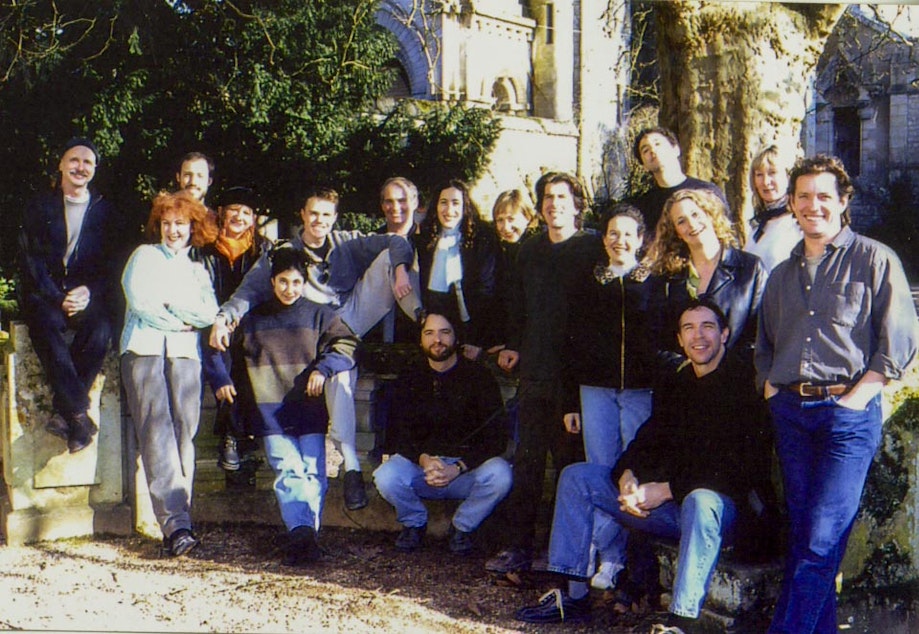How A Doomed French Chateau Inspired A Seattle Play

The tail end of the 20th century was a heyday for Seattle.
The city's music scene was making international headlines.
Microsoft had spun off a new generation of technology entrepreneurs who helped launch a dot-com frenzy.
And the economy was booming.
That nouveau-gold rush sensibility fueled the optimism of Seattle's burgeoning arts community.
"Everywhere you turned there were new theaters, new theater companies, and there was that feeling that anything was possible," says playwright Rachel Atkins.
That pie-in-the sky optimism inspired Atkins and her Seattle artist friends to move to a centuries-old chateau outside Poitiers, France. They called themselves the Ardeo Theatre Project, and their dream was to live and work together, producing theater and providing hands-on schooling for college-level drama students.
They bought a chateau and 55 wooded acres from a group of Benedictine nuns with plans to build rehearsal rooms, a theater and dormitories.
Then, everything went wrong.
"The night we signed the papers," remembers Atkins, "was the worst storm that Europe had seen in 60 years."
Hurricane-strength winds and rain lashed most of Europe, including the Poitiers property. The young Americans were left without heat or electricity, with downed trees and damaged buildings. Atkins says that was just the beginning of their problems.
Although the nuns had made some improvements to the chateau, the building needed major renovations to make it adequate for both theater productions and a study-abroad destination. Atkins compares it to your worst home renovation nightmare, but on steroids. Everything took longer than scheduled, and cost more than the Ardeo Theatre Project members had to spend.
Ultimately, the group was forced to cancel two student residencies they desperately needed for income. Less than one year together in France, the Ardeo Theatre Project folded.
Fourteen years later, Atkins, now an award-winning playwright, has wrestled this personal drama into an evening of theater.
"I knew right away this has to be a play," Atkins says. "It's a sad story because the dream died, but it's also a wonderful story because it was this wonderful dream, and the things that happened to us were so ridiculous that you can't believe all this stuff really happened."
The playwright is relieved, and happy, to share these experiences with audiences.
"I think it taught me that it's OK to take a risk," she says.
"I always tell people that Ardeo was simultaneously wonderful and terrible at every single moment. We made a family, we made a community. Even though we were destroyed, it didn't break us."
Rachel Atkins' play, "Voyage for Madmen: The Unbelievably True Epic Failure of the Ardeo Theatre Project," runs February 20-March 7 at Seattle's West of Lenin performance space.

